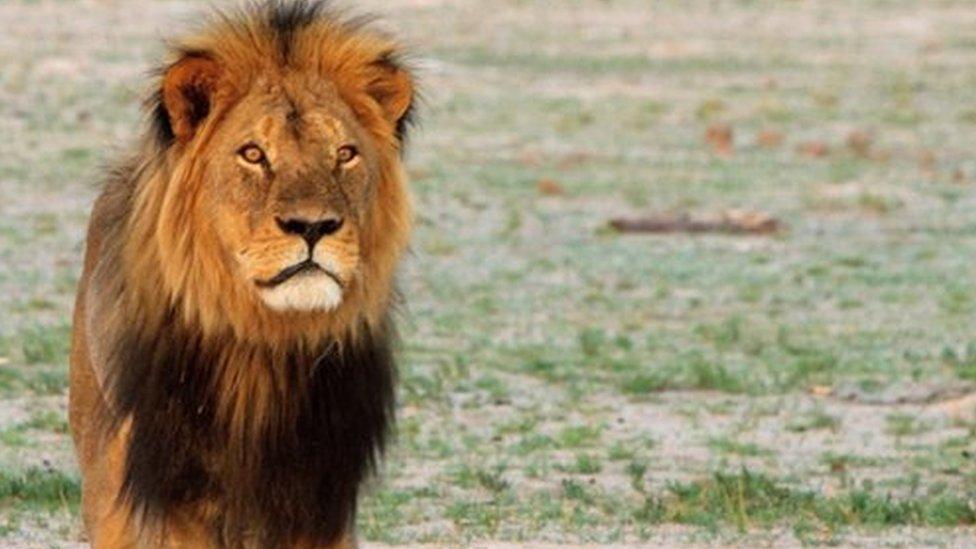Research lion killed in alleged trophy hunt shooting
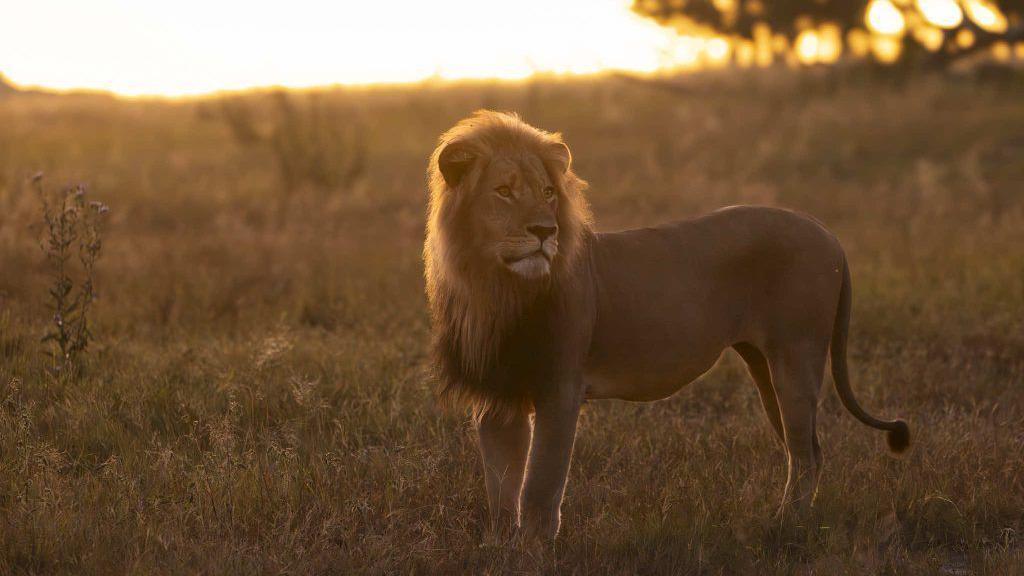
Blondie was thought to be killed near Hwange National Park in Zimbabwe
- Published
A well-known lion studied by University of Oxford academics has allegedly been killed by trophy hunters.
Blondie, who was believed to be five-years-old and the dominant male in his pride, is thought to have been killed on the week commencing 29 June just outside of Hwange National Park, in Zimbabwe.
The lion had been wearing a collar used by a university team to study its movements and support long-term conservation efforts.
Simon Espley, CEO of Africa Geographic, a safari company that sponsored the collar, said he was "dismayed and angered".
He said in a statement: "That Blondie's prominent collar did not prevent him from being offered to a hunting client, confirms the stark reality that no lion is safe from trophy hunting guns."
"He was a breeding male in his prime, making a mockery of the... repeated claims that trophy hunters only target old, non-breeding males."
Africa Geographic allege that the lion was "lured out" of his usual habitat and shot, in what the company said was a "deeply unethical hunt".
But, the company added that sources suggested the hunt took place legally, with all required permits in place.
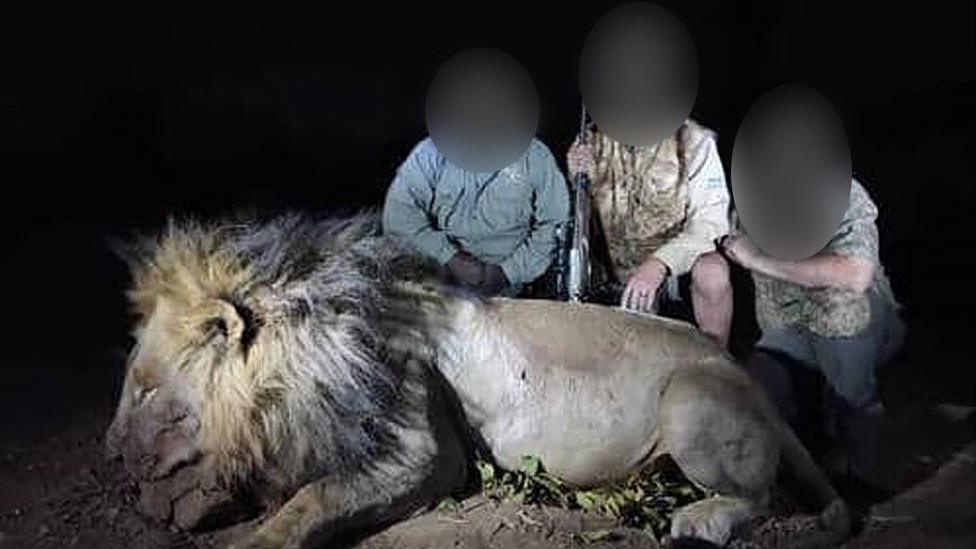
An image of the hunters alongside the dead lion was posted to Facebook, before being deleted
In a statement to Associated Press, external, Tinashe Farawo, spokesperson for the Zimbabwe parks agency, defended the hunt and said they often happened at night, meaning the collar on Blondie may not have been visible.
He said he had no information on Blondie being lured out of the park with bait, but said there "is nothing unethical or illegal about that for anyone who knows how lions are hunted - this is how people hunt".
"Our rangers were present. All paperwork was in order. Collars are for research purposes, but they don't make the animal immune to hunting," Mr Farawo said.
He declined to name the hunter.
In a text message to The Times, external, Mike Blignaut, co-owner of Victoria Falls Safari Services, who allegedly helped organise the hunt, said: "I cannot comment on anything. This is under instruction from ZPGA (the Zimbabwe Professional Guides Association)."
But he added: "I do wanna assure you, though, that the hunt was legal and conducted ethically."
The BBC has also contacted Mr Blignaut for a comment.
Blondie is said to have led a pride of three females and ten cubs.
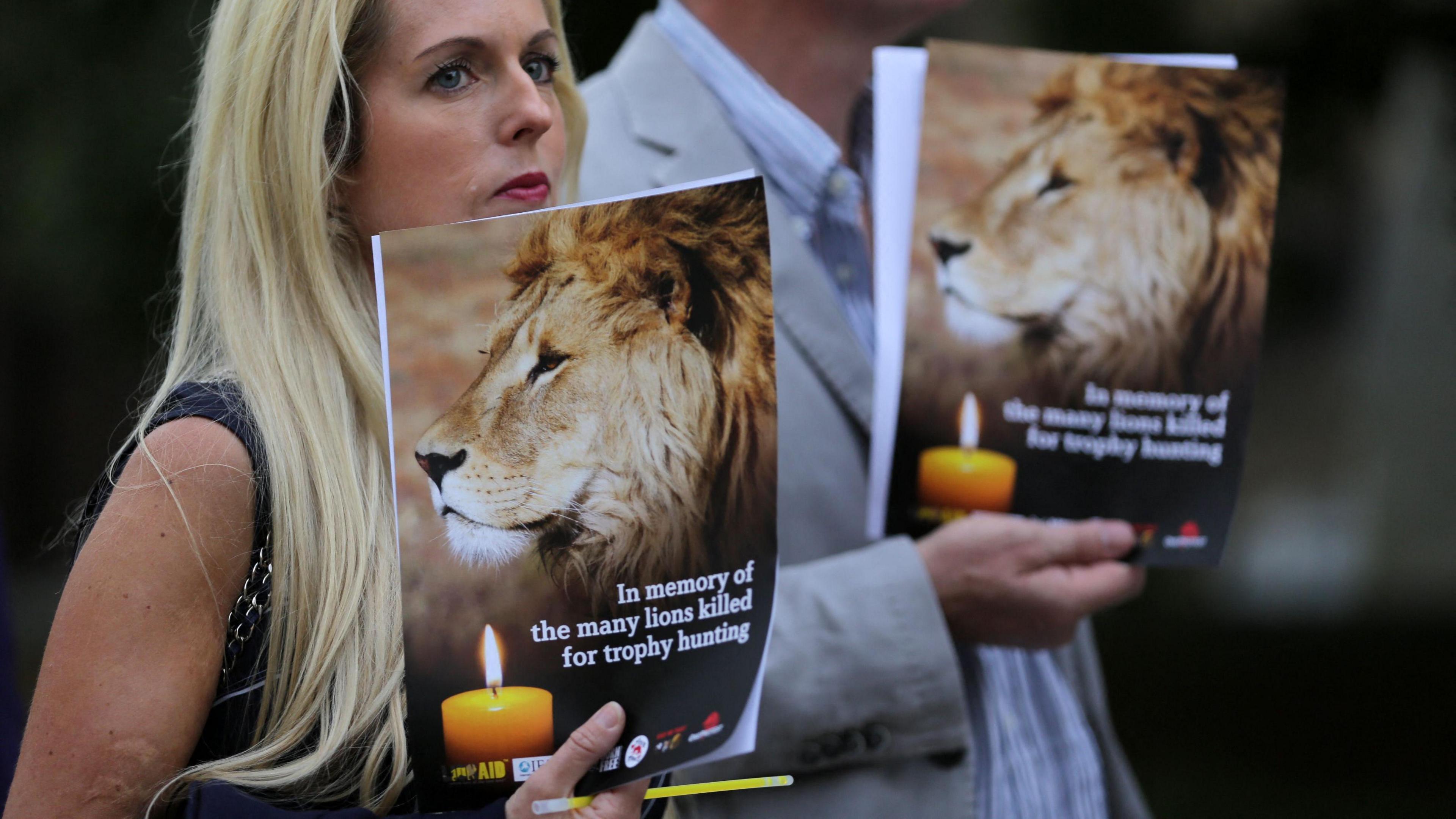
Blondie's death echoes that of Cecil the lion, which led to widespread protests
Responding to the lion's alleged death, conservation charity Born Free said it was "shocked and saddened that yet another magnificent male lion has been brutally and callously slaughtered by a trophy hunter".
The charity compared Blondie's fate to that of Cecil the lion, who was killed in similar circumstances in Zimbabwe in 2015.
An American dentist had paid $50,000 (£32,000) to shoot Cecil - which led many to call for the southern African country to tighten up its trophy hunting laws.
Born Free's head of policy Dr Mark Jones said "little has been learned since Cecil's death".
"This irresponsible activity has no place in the modern world, when wildlife needs all the help it can get just to survive. Trophy hunting must be consigned to history," he added.
The study had been led by Oxford's Wildlife Conservation Research Unit, who have not responded to a BBC request to comment.
Get in touch
Do you have a story BBC Oxfordshire should cover?
You can follow BBC Oxfordshire on Facebook, external, X (Twitter), external, or Instagram, external.
- Published22 March 2024
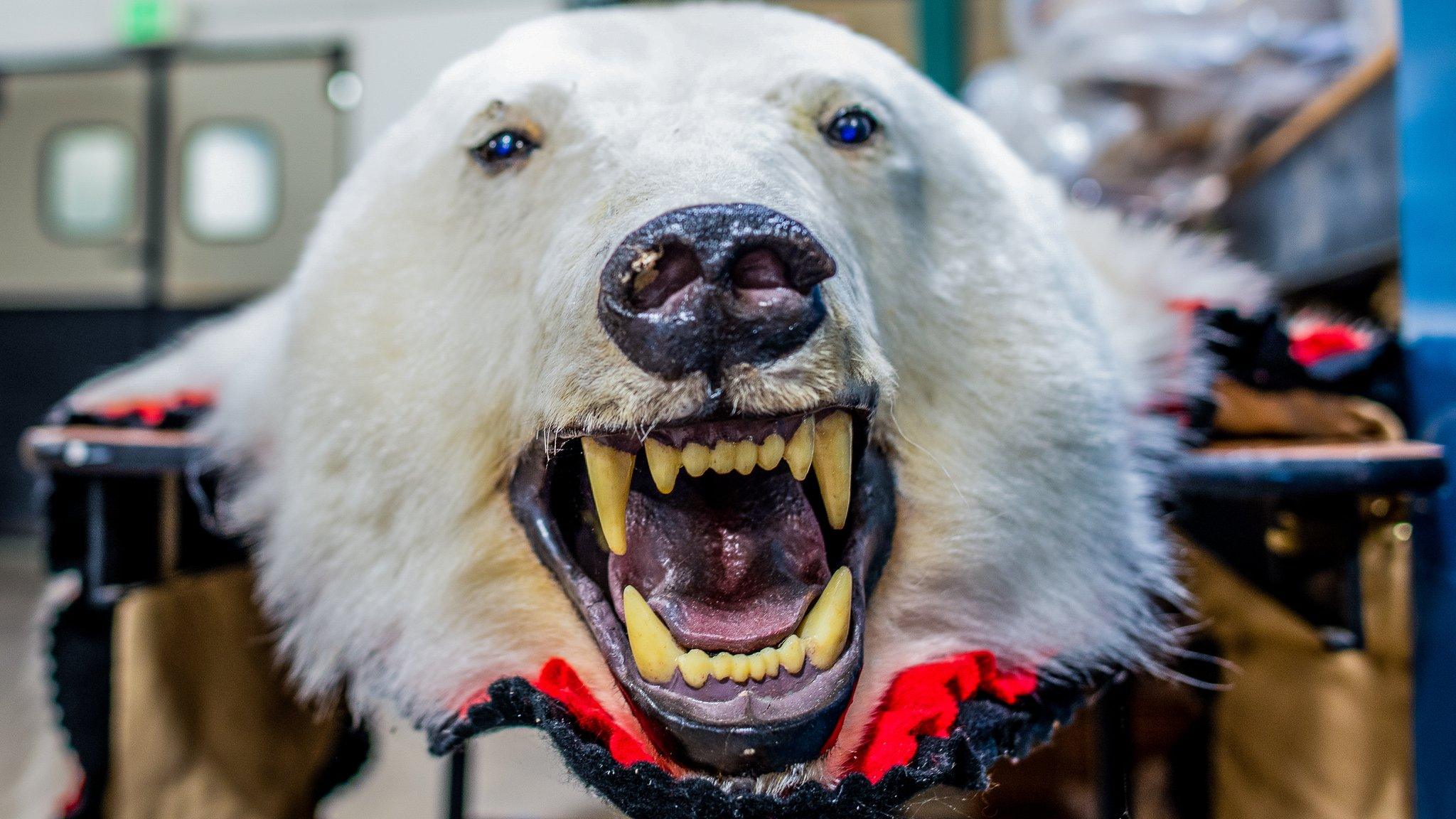
- Published30 August 2019
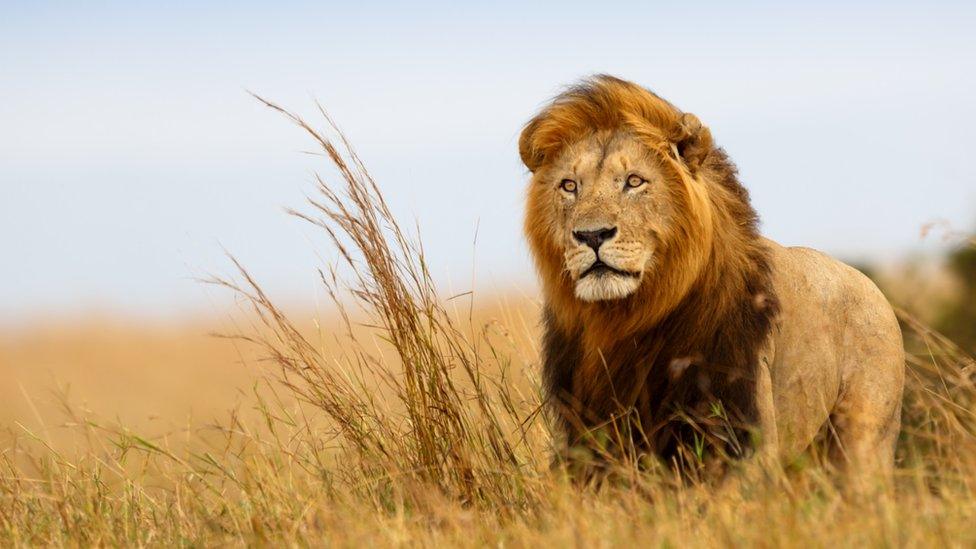
- Published27 July 2015
